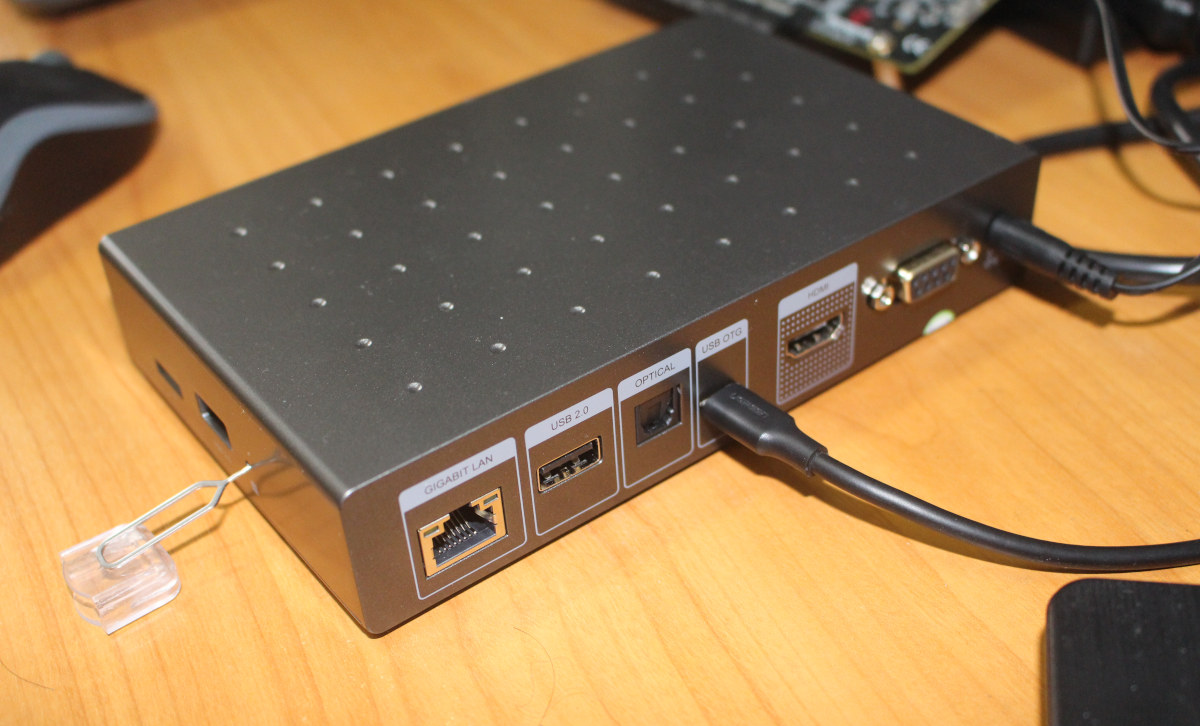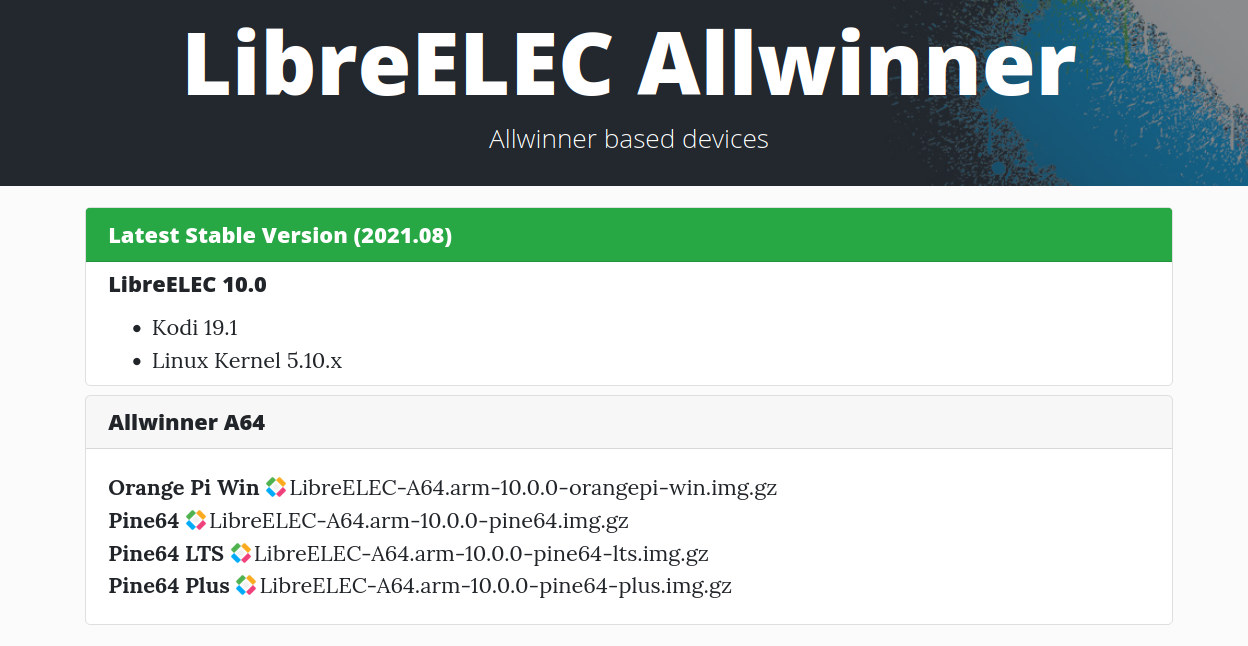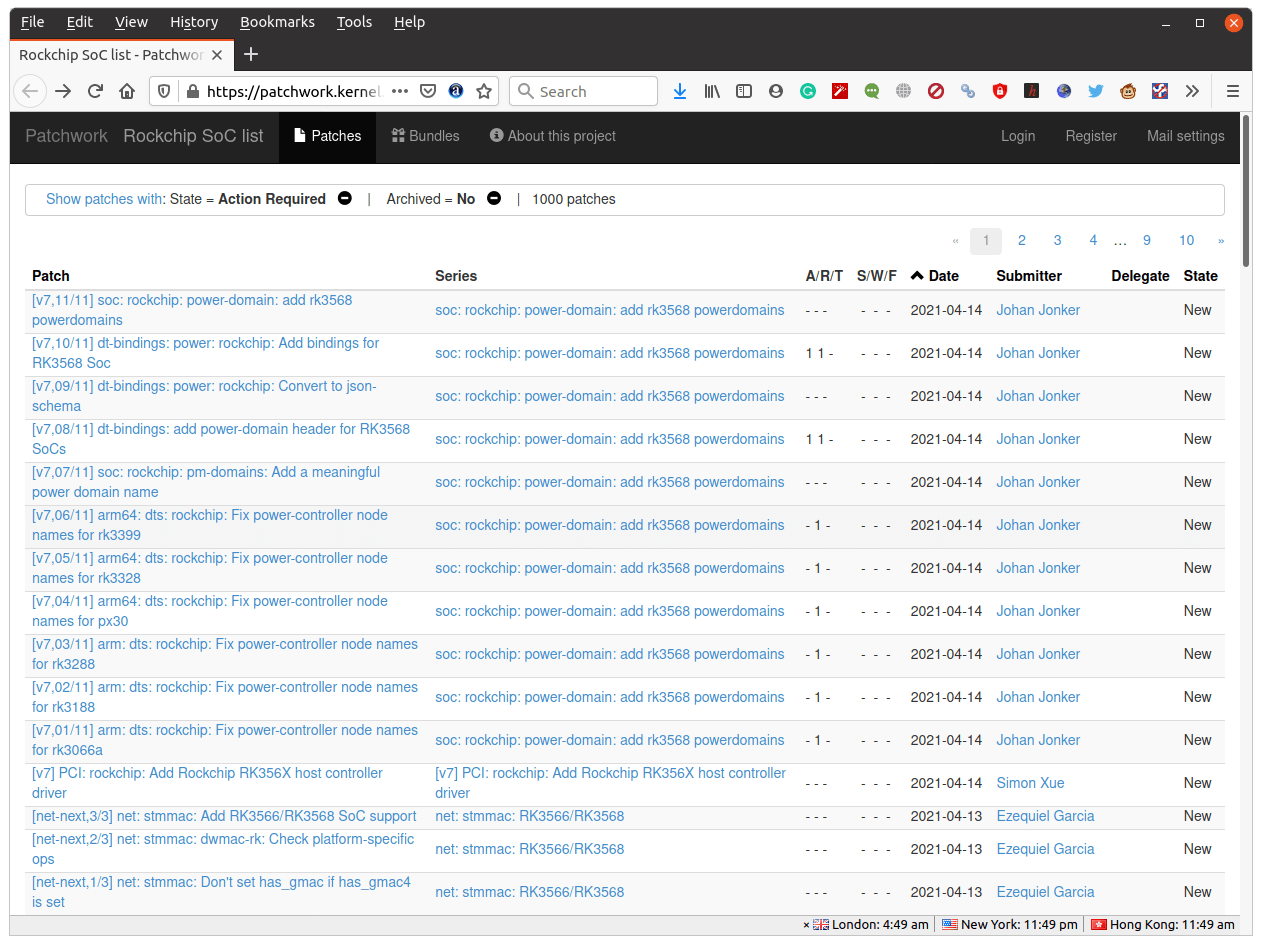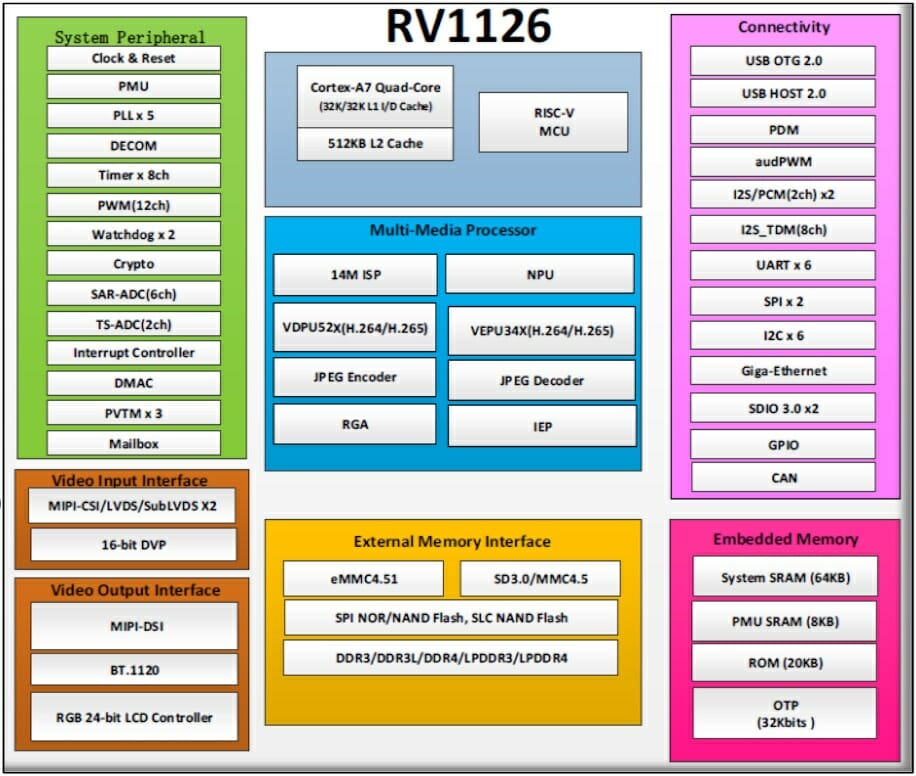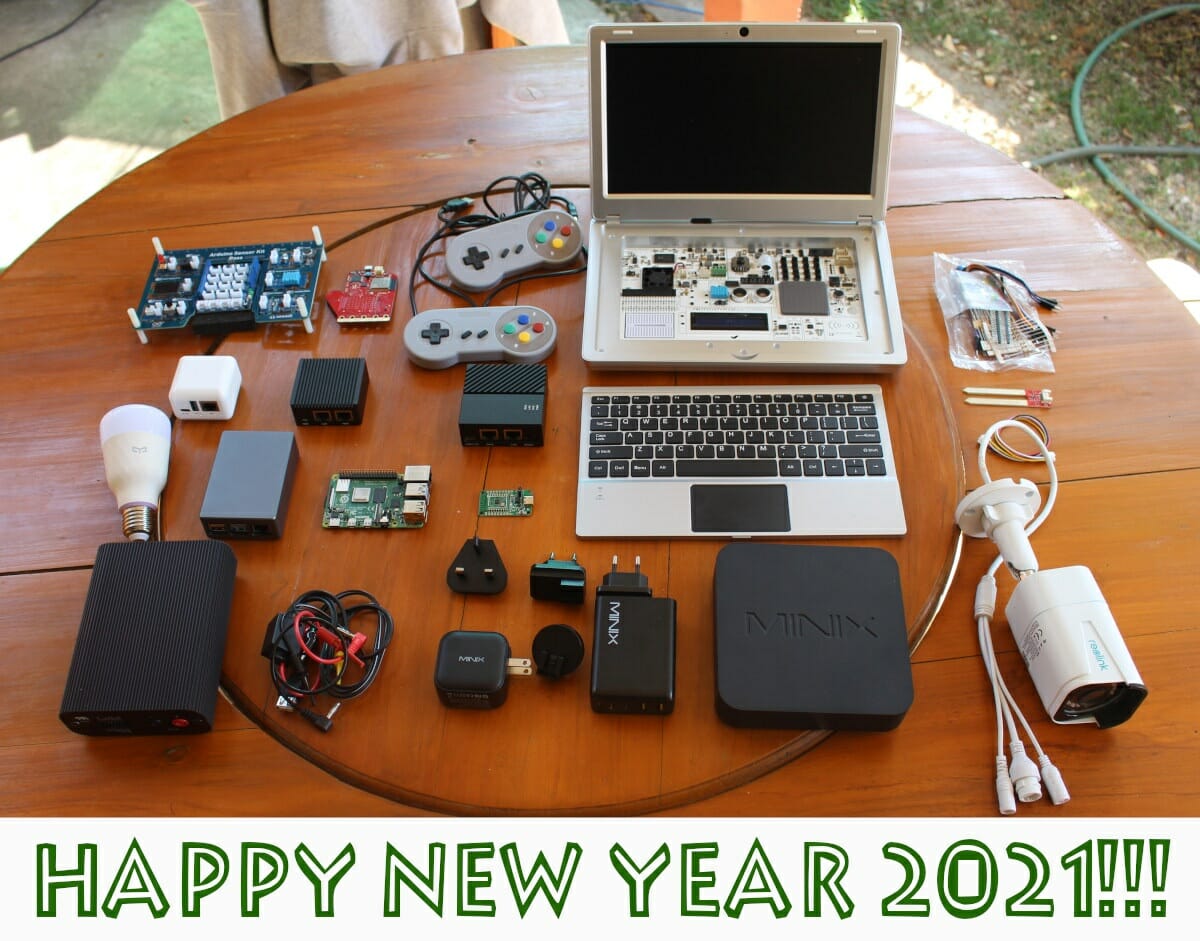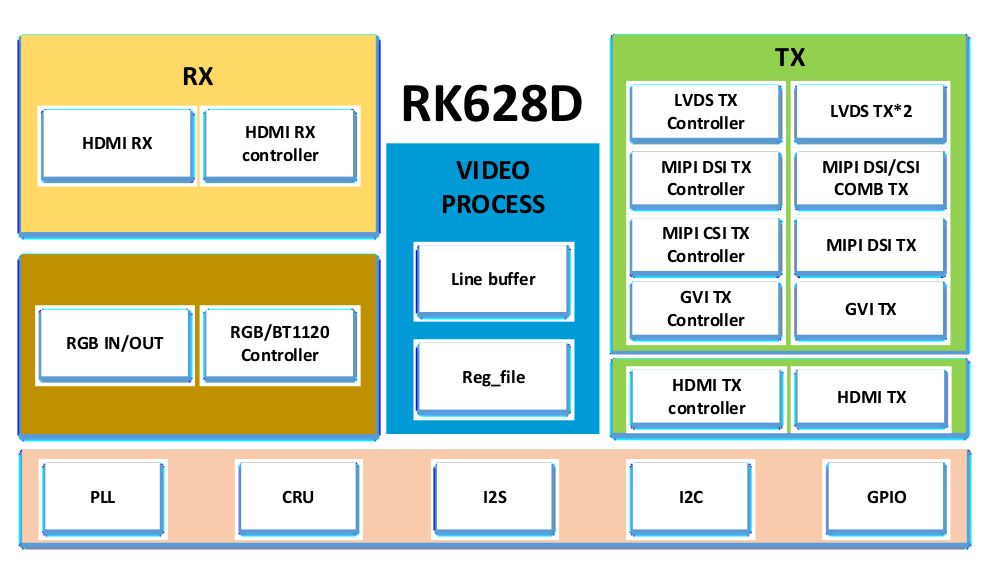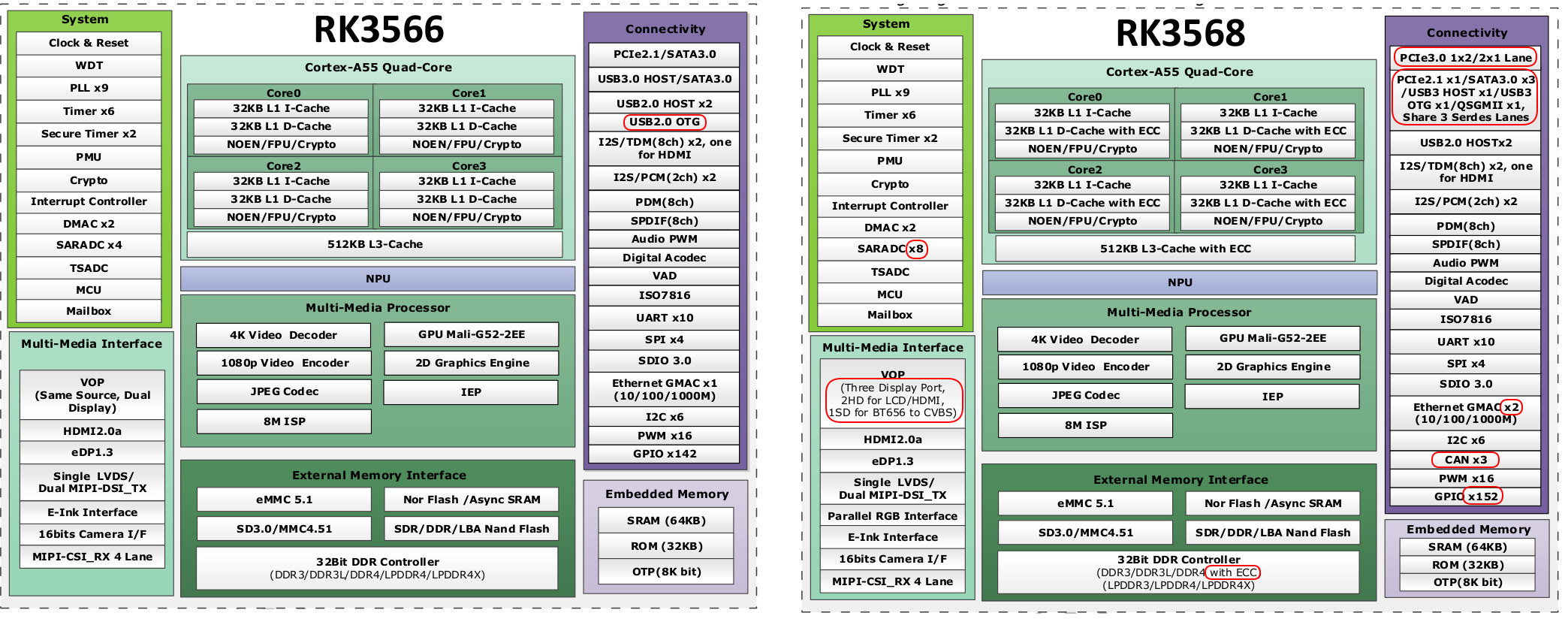We’ve written several articles detailing methods to flash firmware to Rockchip devices in Windows or Linux over the years, with tools like RKAndroidTool, RkFlashKit, upgrade_tool, or the open-source rkdeveloptool utility. This is mostly useful to flash another OS or if the device does not boot, as most products will now support OTA firmware updates. But following my review of Zidoo M6 with Android 11, I’ve now got a Linux image for the Rockchip RK3566 mini PC, so let’s revisit the firmware flashing methods in 2021. Zidoo sent me instructions for Windows, but since I’m a Ubuntu user, I flashed the firmware with the Linux tools used by Firefly. The same methods should work for the older processors such as RK3066, RK3288, and RK3399, besides the more recent Rockchip RK3566 and RK3568 processors. How to flash Rockchip firmware in Linux [Important update: If your device comes with both eMMC flash and […]
LibreELEC 10.0 minimal Linux OS for media playback released with Kodi 19.1
While most TV boxes and SBCs nowadays ship with or support a version of Android, people who just want the best viewing experience may prefer to switch to a Linux distribution such as LibreELEC or CoreELEC. The good news is that LibreELEC 10.0 has just been released with Kodi 19.1 and Linux 5.10 LTS. LibreELEC 10.0 is said to work well for Allwinner, Rockchip, and “Generic” Intel/AMD devices, while the Raspberry Pi 4 release’s codebase is rather new, and there may still be a few rough edges. Support for the previous generation Raspberry Pi boards has been dropped, and there’s no support for Amlogic platforms as CoreELEC already provides good support. Since LibreELEC 10.0 is based on Kodi 19.1, it benefits from the same features as Kodi 19 “Matrix” release including AV1 video decoding, a new skin, HDR support, and more. LibreELEC 10.1 support a wide range of single board […]
Rockchip RK835 & RK837 fast charger chips support USB PD 3.0, QC4+, and VOOC
Rockchip is better known for its application processors for TV boxes (RK3328), Chromebooks and other higher-end hardware (RK3399), AIoT applications (RK3566), and more, but the company has recently introduced the RK83x family with RK835 and RK837 chips designed for fast chargers compatible with USB PD 3.0 and/or Qualcomm Quick Charge 4+ and BBK Electronics’ VOOC. RK835 Specifications MCU sub-system – Arm Cortex-M0 with 60KB flash, 1KB RAM USB PD 2.0/3.0 and PSS with TID number 4325 USB Type-C and Vconn power source Supports proprietary protocols 8-channel 10-bit, 500Hz converter speed ADC sensing voltage and 1-channel 10-bit current ADC All GPIOs can be configured as ADC input or edge triggering input DP/DM pins can be configured as UART, BC 1.2, or GPIO mode High-voltage endurance DP/DM and CC1/2 pins I2C interface with slave and master modes Low-power RC oscillator, 3 timers, one watchdog Discharge N-MOSFETs for VCC and VBUS Power – […]
RK3566 & RK3568 processors to get Linux mainline support soon
Rockchip RK3566 & RK3568 processors were just officially announced at the end of the year, and soon followed with announcements of related such as Core-3568J AI Core system-on-module, some Android 11 TV boxes, Station P2 mini PC, and RK3566/RK3568 development boards. But it did not take long, as RK3566/RK3568 are about the get support for mainline Linux, with engineers from Collabora and Rockchip having recently committed preliminary support for RK356x platforms, notably using Pine64 Quartz64 SBC for testing. The most recent commits target power management, networking, and the PCI host controller. It’s not clear when code will be merged to mainline, but Collabora said “Pine64 Quartz64 SBC out-of-the-box support is right around the corner” in a recent tweet. In any case, it’s good news there’s active development for mainline Linux on the new Rockchip processors, as that means it will be possible to run the latest version of Linux on […]
Rockchip RV1126 AI Camera SoC features 2.0 TOPS NPU, promises 250ms fast boot
The Rockchip Developer Conference that took place at the end of November 2020 allowed us to learn more about RK3588, RK3566, and RK3568 64-bit Arm processors for AIoT applications. But the company also presented additional details about camera SoC’s, namely the dual-core RV1109 and quad-core RV1126, equipped with a 1.2 TOPS and 2.0 TOPS respectively, and both capable of delivering a 250ms fast boot. Rockchip RV1109 and RV1126 share many of the same specifications: CPU RV1109 – Dual-core Arm Cortex-A7 @ 1.5 GHz + RISC-V MCU @ 400 MHz RV1126 – Quad-core Arm Cortex-A7 @ 1.5 GHz + RISC-V MCU @ 400 MHz GPU – 2D graphics engine NPU RV1109 – 1.2 TOPS with support for INT8/ INT16 RV1126 – 2.0 TOPS with support for INT8/ INT16 Memory – 32-bit DDR3/DDR3L/LPDDR2/LPDDR3/DDR4/LPDDR4 up to 4GB RAM Storage – eMMC 4.51, Serial SPI NOR Flash or NAND flash with fast booting support, […]
Year 2020 in review – Top ten posts and stats
It’s this time of the year when we look back at what happened, and what may be next. 2020 did not pan out as planned in more ways than one, but there were still some interesting developments. Based on 2019 announcements, 2020 was promising to be an exciting year for Amlogic and Rockchip with the expected launch of RK3588 and S908X high-end processors for 8K capable devices, but we’ll have to wait for 2021 for this to happen. Instead, the most interesting processor of the year from the Allwinner, Amlogic, and Rockchip offerings was probably Amlogic S905X4 processing adding AV1 hardware decoding. As pointed out in our “RISC-V 2020 highlights” post, it was a fairly eventful year for RISC-V architecture, although there’s still a long road ahead, especially for application processors. We had seen some general-purpose and Bluetooth RISC-V MCUs in 2019, but 2020 saw the launch of the first […]
RK628D adds HDMI input, extra video outputs to Rockchip processors
If I’m asked about a Linux or Android platform with HDMI input, I would immediately think about Realtek RTD1295 SoC with products like Zidoo X9S or X2 TV stick which enabled picture-in-picture (PiP), UDP/TCP broadcast of HDMI input, or PVR functions. Some Rockchip boards such as Orange Pi RK3399 SBC do come with both HDMI output and HDMI input, with the latter relying on a Toshiba TC358749XBG HDMI interface bridge IC. But Rockchip has decided to design its own HDMI input chip with Rockchip RK628D supporting HDMI, parallel RGB or BT.1120 as input and dual MIPI, dual LVDS, GVI (general video interface), parallel RGB, or BT.1120 as outputs. The new chip would enable PCB designers to add display output ports to application processors such as RK3288 or RK3399, or add an HDMI input interface. Rockchip RK628D key features and specifications: Video input interfaces HDMI 1.4/2.0 RX interface up to 4Kp60 […]
Rockchip RK3566 and RK3568 datasheets and features comparison
We first covered Rockchip RK3566 processor in February, but we’ve been informed the specifications have changed since then, and earlier this month, we also wrote about RK3568 quad-core Cortex-A55 processor with the same base features but some extra I/Os. But due to NDAs, people familiar with the chips could not release too many details, so we did not get the full picture. This has just changed as the datasheets for both processors have just dropped from somewhere here and there, and we can get a much closer look. RK3566 and RK3568 specifications I’ve highlighted the obvious differences above, with the big ones being the PCIe interface and RK3568 having dual Gigabit Ethernet. The other features comparison can be found in the table below. Multiplexed interfaces. Important note. Rockchip RK3566 and RK3568 are using Multi-PHY Interfaces, and while the table above lists all possible interfaces, they can not all be used […]


